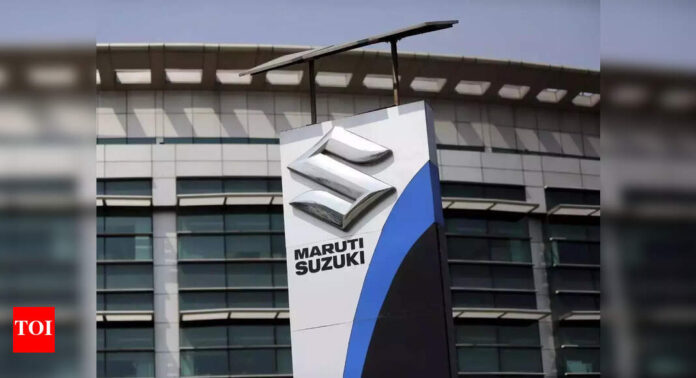NEW DELHI: Maruti Suzuki India MD-CEO Hisashi Takeuchi asserted on Tuesday that the car market leader would dispatch 35% more vehicles through trains by financial year (FY) 2030-31.“Once it becomes fully operational, we will be able to dispatch 4.5 lakh vehicles annually, increasing the share of railway dispatches to 35 per cent by FY 2030-31,” news agency PTI quoted Takeuchi as saying.He was speaking at the inauguration of the automobile in-plant railway siding – its second such facility – at the Maruti Suzuki factory in Haryana’s Manesar. The automobile in-plant railway siding at Manesar is the largest GatiShakti multi-modal cargo terminal in the country.Meanwhile, Takeuchi also recalled how Maruti Suzuki increased vehicle deliveries via trains, from just around 5 per cent in FY 2014-15 to 24 per cent last year.“We pioneered the use of railways for vehicle dispatches over a decade ago by becoming the first company to obtain the automobile-freight-train-operator license in India, and since then, we have delivered over twenty-five lakh passenger vehicles using railways,” he said.In March 2024, the carmaker became the first automobile company to establish an in-plant railway siding – at its manufacturing plant in Ahmedabad, Gujarat.Takeuchi said the company will “take it further” with the new facility at Manesar.“This means a growth of almost 40 per cent from the current level. We will be able to avoid an estimated 1.75 lakh tonnes of carbon dioxide equivalent emission and save 60 million litres of fuel annually,” he stated.
